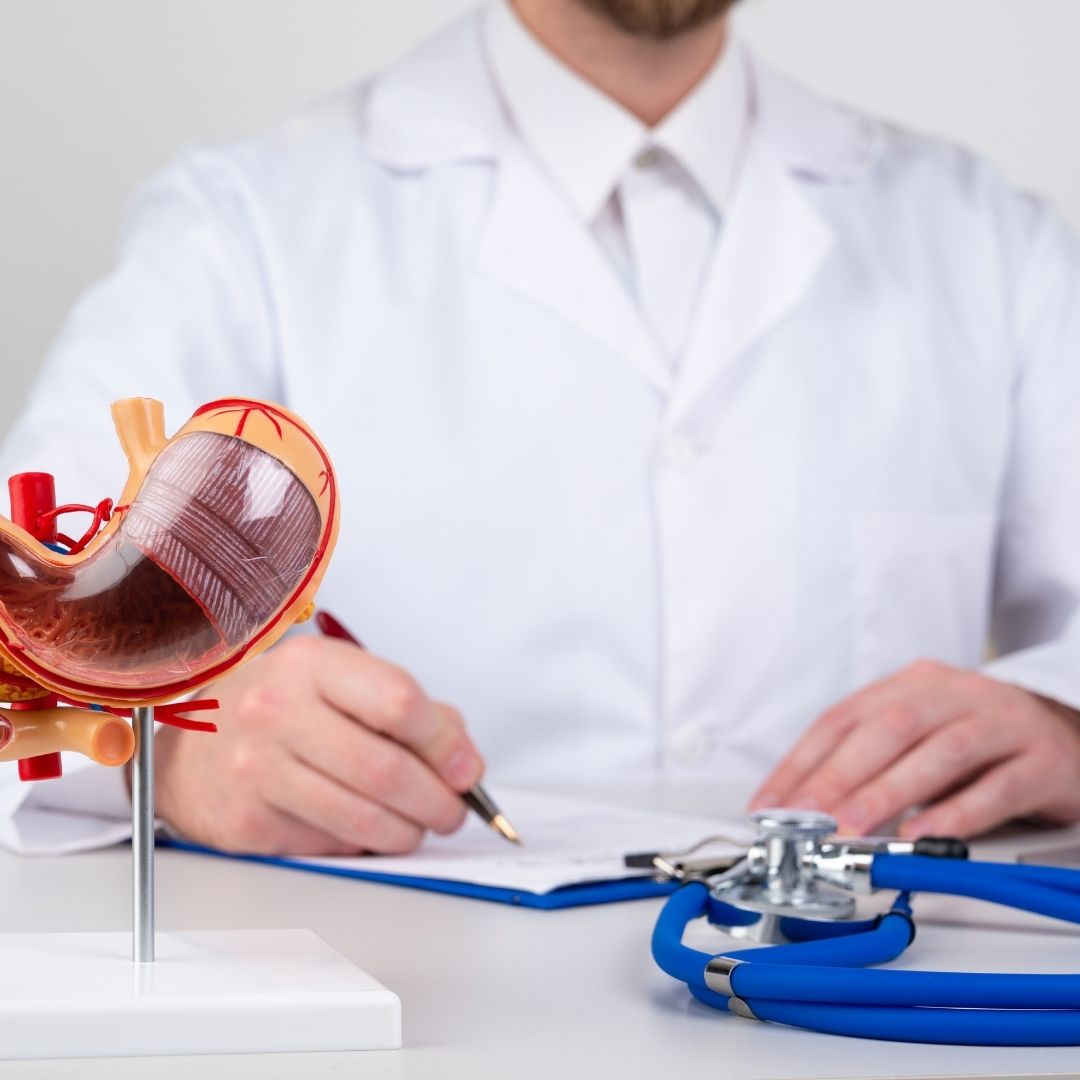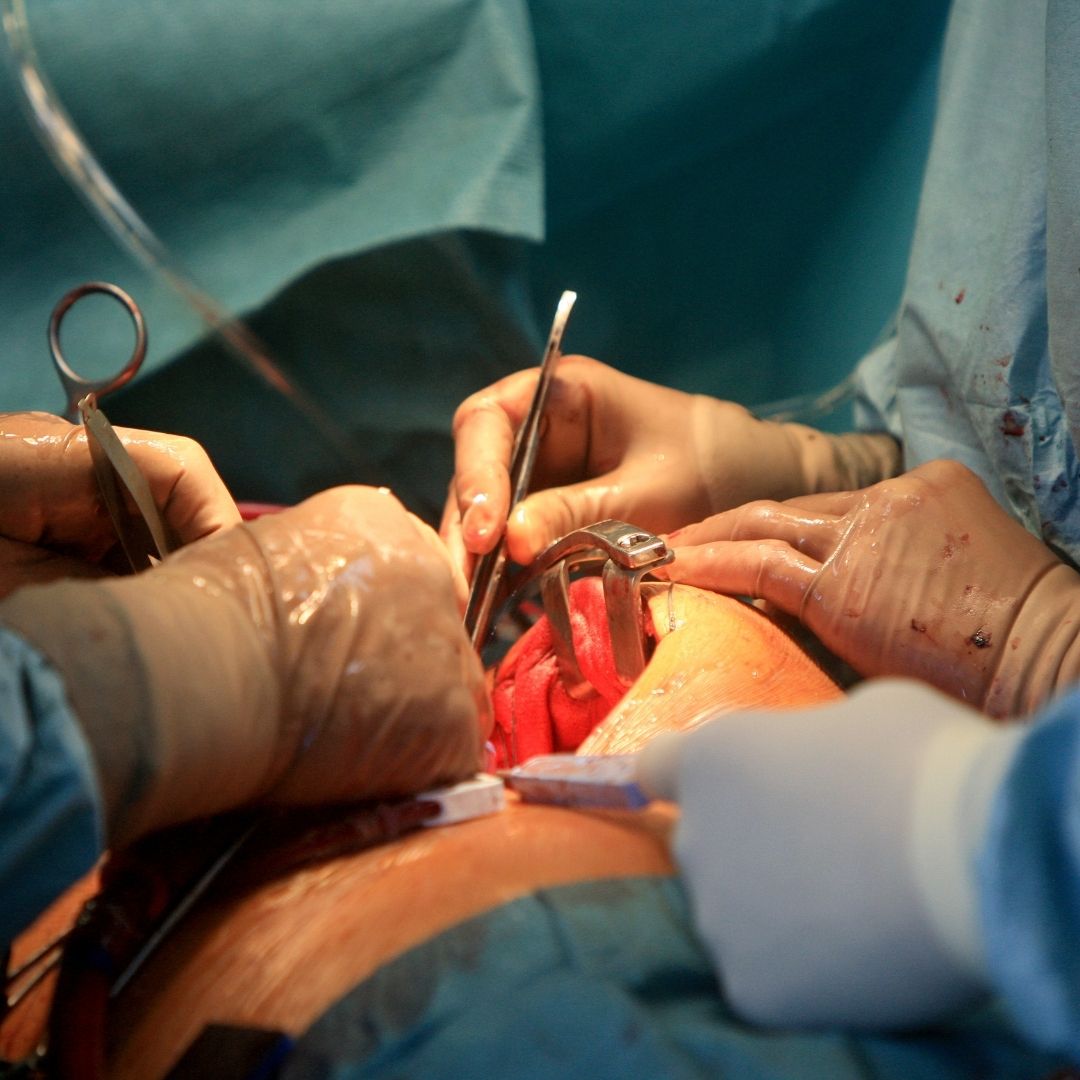
Gastric Sleeve Diet
If you are planning for having gastric sleeve surgery, you are probably looking forward to your new body and learning how to eat in a whole new way. Preparing for your life after gastric sleeve surgery will be thrilling, but it will be challenging too.
The diet you’ll be required to pursue both before and after the gastric sleeve is very specific and geared toward helping recovery and avoiding sequelae. As time progresses, your diet will shift toward helping you procure healthy eating habits, so you can maintain to lose weight and, ultimately, continue a healthy weight for life.
The effectiveness of the gastric sleeve depends a great deal on your pre-operation and post-operation diet. Healthy Türkiye provides you with the best gastric sleeve surgeons and dietitians in Turkey.
In Turkey, gastric sleeve surgery is a safe and clinically proven procedure for reducing body weight. The method includes decreasing stomach size by separating the upper part of the stomach, called the fundus, from the rest of the tummy. A smaller stomach signifies a smaller appetite. You get full quicker and are less likely to overeat.
Gastric sleeve is the most effective operation for fast and steady weight loss surgery in Turkey, ridding patients of 40-50kg in just a year. It is also safer than a Gastric Bypass, which includes more drastic engineering. However, after removing 75-80% of their stomach, specialists ask patients to change their eating habits, adapting what is known as a bariatric diet or gastric sleeve diet. This may come across as a little upsetting for people who think their diet will last forever, but it will be indispensable for recovery purposes.
Gastric Sleeve Diet Plan Before the Surgery
Patients must diet before and after gastric sleeves. As in any other surgical operation, patients must attend to the surgery room with an empty stomach. A main, presurgery dietary goal is shrinking your liver. Your liver most likely has piled up fat cells both in and around it. This makes it larger than it should be. Your liver is localized right next to your stomach.
To prepare for the procedure, you’ll be given a specific diet to pursue, beginning two weeks before your determined surgery date. It’s a strict diet that pinches calories as well as carbohydrates, such as sweets, potatoes, and pasta. You will eat at first lean protein, vegetables, and low- or no-calorie liquid. Your doctor may give you a caloric goal daily.
Two days before the operation, you will switch to a clear, liquid diet. This may involve one no-sugar protein shake daily, in addition to broth, water, decaffeinated coffee or tea, and sugar-free popsicles. Caffeinated and carbonated beverages should not be preferred. Many programs in Turkey prescribed eating 800 to 1,200 calories a day and sticking with these guidelines until two or three days before your gastric sleeve surgery.

The Best Diet Before Gastric Sleeves
Pre-Operation Gastric Sleeve Diet: 3 Weeks Before Surgery
Decrease calories—principally carbohydrates. Carbohydrates are a major contributor of calories to most diets. Refined sugars, like those in candies and drinks, should not be preferred. Other sources of carbohydrates, like bread and pasta, can be eaten diddly.
Maximize protein receiving. Eat 60 or more grams of protein a day. Good sources of protein involve chicken, lean ground beef, and eggs.
Healthy fats are the best. It’s a myth that all fats are bad for you but it is wrong. Healthy fats are found in foods like vegetables, fish, nuts, and olives. Other fats, like those, that are found in butter or oils, should be curtailed. Trans fats should be avoided altogether.
Don’t dehydrate. Drink plenty of water in the weeks before your operation. Reduce or avoid soft drinks and alcoholic beverages.
Pre-Op Gastric Sleeve Diet: 2-3 Days Before Surgery
Two or three days before the operation you’ll need to switch to an all-liquid diet. Limit your food intake to water, broth, and low-calorie sports drinks (no sodas). You’ll need to stop consumption entirely starting at midnight on the day of your surgery – even water. Failure to follow these guidelines may jeopardize your eligibility for the gastric sleeve operation.
Gastric Sleeve Diet Plan After the Surgery
Your post-op diet – what you eat in the weeks and months after your gastric sleeve operation – is just as crucial as your pre-op diet. You will begin with liquids and then gradually re-introduce solid foods. Consecution of your post-op diet is fundamental if you want to realize the benefits of a bariatric procedure. It will also help you prevent potential health complications, including diarrhea, nausea, vomiting, constipation, and gastric leaks.

The Best Diets After Gastric Sleeves
The best gastric sleeve diet is the one your specialist will recommend to you. The most important thing is to find out a competent, responsible surgeon who will review your situation and specify a tailor-made diet plan for you. But in the following you can find some hints:
The first week after the operation is the most important. Your tummy has been opened, surgical tools have been introduced inside your body, and a large part of a vital organ has been dismantled. This alludes that patients must do all they can to help the healing process.
The most crucial aspect of your diet instantly following bariatric surgery is to keep well hydrated. Make sure you sip clear liquids between ‘meals’ (more calorific/high protein drinks). Take bit sips and cease when you feel full or any pressure. Dietitians usually recommend starting with 200ml/hour and building this up as tolerated. Drinking 1.5 to 2 liters of fluid a day is the best for staying hydrated. (all drinks count towards this amount).
You should purpose to eat at least 60g of protein a day within a week after your operation, i.e. 3 pints of nutritious drinks such as milk or meal replacement drinks (or protein shakes). That helps your body to recover from the operation but provides a way to minimize muscle loss whilst you are losing weight. Take a completely chewable A-Z multivitamin during this process.
From the liquid diet, we switch to the semi-solid diet with puree, compotes, and mashed food recipes. You can prefer meat or vegetable-based, and you can add fat-rich foods, such as salmon, to your nutrition habits. Quantities must be kept small, as all digestive efforts must stay under strict minimums.
Gastric Sleeve Diet Three and Four Weeks After After Surgery
After weight loss surgery in Turkey, it will take some time for your body to adjust to eating normal foods. You will be restricted to liquids and then soft foods for weeks following your surgery while your stomach is healing. The exact time period during which you will be able to begin eating pureed foods will depend on your weight and medical history, as well as the type of operation you had.
Long-term Diet After Gastric Sleeve Surgery
Our bodies naturally adapt to our caloric intake and automatically slow down or speed up our metabolism to pursue a certain “set point”. This means you need to be prepared to combat these slow-down processes with a pre-determined strategy.
What you eat immediately after your operation will not be the same as what you eat after a year, or 2 years, or maybe even 5 years. How well prepared you are to modify and arrange your eating habits will greatly affect your weight loss progress and maintenance.
What Can You Avoid to Eat After a Gastric Sleeve
Many bariatric doctors suggest no carbonated drinks or chewing gum ever again after bariatric surgery. There are also cautionary foods in the diet that may find they cannot tolerate short-term and possibly long-term. You may wish to consult your doctor before proceeding with adding these foods. Some of the food patients reported having issues with are, soft bread that is not toasted, especially white bread, boiled rice or soft sticky pasta, and raw vegetables that are stringy like celery.
Your dietary restrictions after gastric sleeve surgery will be an ongoing, lifetime process. Your body may not tolerate certain things initially, and then, after a few months, may have no issue with that same food item. There may be foods that you will never be able to eat again that are unique to you. It will be a trial-and-error process.
Even the way you eat will have to be altered because it is very crucial that you eat very slowly and that your food is chewed thoroughly before you ingest it in your diet. If you do not do this, you may end up with nausea, and diarrhea, or you may have food lodged in the opening of your new stomach.
Making all these adjustments to your diet and eating patterns may seem overwhelming at first but as time goes on, it will become the new norm. The benefits of your new life, weight loss, improved health, enhanced mobility, etc., will outweigh any dietary inconvenience.
Gastric Sleeve Pre-op Diet Cheating
To break from the pre-operative diet plan, your liver will not shrink enough to make the operation safe and simple. Your specialist would realize within minutes if you cheated. During surgery, the laparoscopic camera can pick up the food you ate. The food could be in your stomach or intestine. With an increased risk of complications and an inability to commit to a healthier diet, you may find your surgeon canceling your surgery altogether.
The Study of Gastric Sleeve Diet
A recent study published in the ‘Journal of Bariatric Surgery’ conducted at a major research hospital followed 500 patients who underwent gastric sleeve surgery. The study found that following a strict pre-operative diet plan, as outlined in the article, led to a significant reduction in liver size and improved the safety and efficacy of the surgery. Additionally, the post-operative dietary recommendations mentioned in this article were associated with better weight loss outcomes and fewer complications in the months following the surgery.
Gastric Sleeve Diet Recipe
Pureed Chicken Salad
1 chicken breast cooked, 2 Tablespoons plain Turkish style yogurt, ⅛ teaspoon celery salt, ⅛ teaspoon onion powder, a pinch of black pepper. Place the chicken breast into a food processor, and grind the chicken until it is a fine consistency. Stir in yogurt, and celery salt, onion powder, and enjoy your meal.
Can You Apply the Gastric Sleeve Diet Without Surgery?
As a result, gastric sleeves and other bariatric surgeries are reserved for those individuals that are overweight. If your body mass index (BMI) is lower than 30, you can lose weight by sticking to your diet plan and changing your habits. It’s crucial to follow the eating plan your doctor prescribes for you both before and after gastric sleeve surgery. The foods you are allowed are designed to aid your body’s recovery, and also to pave the way toward a healthy eating lifestyle. Exercise is also a vitally important element in your weight loss journey.




